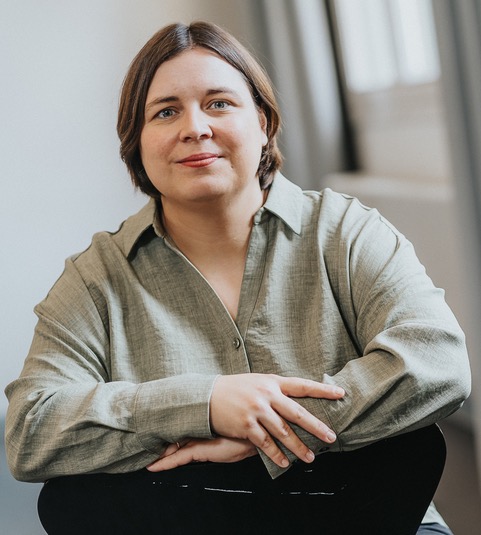Dr. phil. Juliane Scholz
Publikationen (Auswahl)
Juliane Scholz: Sozialgeschichte der Max-Planck-Gesellschaft. Personalentwicklung, Karrieren und Arbeitsbedingungen 1948–2005. Göttingen: Vandenhoeck & Ruprecht 2025 (in print). Link.
Juliane Scholz: Whitewashing the Nazi Past. Continuity and Transformation in Scientific Cinematography in Germany 1934–1956. In: Mariana Ivanova and Juliane Scholz (Eds.), Science on Screen and Paper. Media Cultures of Knowledge Production in Cold War Europe. New York-Oxford: Berghahn 2024, 29–50. Link.
Juliane Scholz: Tierversuche als ethische Herausforderung der Grundlagenforschung. In: Jürgen Renn et al. (Eds.): Die Max-Planck-Gesellschaft. Wissenschafts- und Zeitgeschichte 1945–2005. Göttingen: Vandenhoeck & Ruprecht 2024, 763–772. Link.
Zusammen mit Birgit Kolboske: “Personalstruktur im Wandel“, in: Jürgen Renn et al. (eds.): Die Max-Planck-Gesellschaft. Wissenschafts- und Zeitgeschichte 1945–2005, Göttingen: Vandenhoeck & Ruprecht 2024, 550–568.
Juliane Scholz: Duplicating Nature and Elements of Subjectivity in The Ethology of the Greylag Goose. In: Isis 112 (2021) 2, 326–334. doi:10.1086/714755.
“Partizipation und Mitbestimmung in der Forschung. Das Beispiel Max-Planck-Gesellschaft (1945-1980)“, in: Jürgen Kocka et al. (eds.) (=Ergebnisse des Forschungsprogramms Geschichte der Max-Planck-Gesellschaft, Preprint 8), Berlin 2019.
“A Professional History of Screenwriters in Germany (1910–1945)”, Journal of Screenwriting, 7. Jg. (2016) H. 2, 173–189.
“Der Drehbuchautor in den USA und Deutschland im 20. Jahrhundert. Zur Professionalisierung eines modernen Kreativ- und Medienberufs“, in: Medien & Zeit 30. Jg. (2015) H. 1 (=Themenheft Journalismus, Medien und Öffentlichkeit als Beruf II), S. 17–29.
Juliane Scholz: Der Drehbuchautor: USA-Deutschland. Ein historischer Vergleich. Bielefeld: Transcript Verlag 2016 (=Histoire Bd. 86).
Vorträge (Auswahl)
“Zwangsuntersuchungen, Lebensschutz und Berufsethos: Die ambivalente Rolle deutscher Mediziner:innen im Abtreibungsdiskurs der 1980er und 1990er Jahre“, Das Geschlecht der Medizin. Individualität in medizinischen Konzepten und Praktiken des 19. und 20. Jahrhunderts, Tagung im Alfred Krupp Kolleg in Greifswald vom 2. bis 4. September 2024.
“Zwischen Indikationsmodell und Fristenlösung: Die Reform des Abtreibungsrechts im Zuge der deutschen Wiedervereinigung“, Kolloquium zur Geschichte der Neuzeit, CAU Kiel, November 27, 2023.
“At the Intersection of Male Legal Expertise, Body Politics and Women’s Liberation Movement: The Criminal Law Reform of Abortion Paragraph §218 during the German Re-Unification”, German Studies Associations 47th Annual Conference, October 5-8, 2023 in Montréal, Canada.
“Are we willing to fight for our research?: The Max Planck Society's lobbying and communication strategy during the reforms of the Animal Welfare Act in Germany 1986–2002”, European Society for the History Science (ESHS), September 9, 2022, Brussels.
“Transformationen der Wissensproduktion: Personalentwicklung in der Max-Planck-Gesellschaft 1948-2005“, January 19, 2021, Stuttgarter Arbeitskreis für Wissenschafts- und Technikgeschichte, Stuttgart University (online).
“Shaping Scientific Personas: The Institute for Scientific Film (IWF) and its Collaboration with the Max Planck Society”, Panel: Science Discourses in Cold War Media and Public Sphere: Recycling Research Films and Institutional Restructuring, October 3–6, 2019, 43. German Studies Association Conference, Portland, Oregon.
“Queer Identities in Socialist Health Films and Sexual Education Books: Eine andere Liebe”, German Studies Association Conference, 2016, October 2-5, San Diego, USA.
“Screenwriters, Dramaturges and Production Units in the former GDR: A Historical Overview on a Complex and Anxious Relationship”, 4. Annual Screen Industries in East-Central Europe Conference, November 28–29, 2014, Palacký University, Olomouc.
“Screenwriting in National Socialist Germany: A Profession between Forced Migration, Inner Emigration and Political Loyalty”, 7. Screenwriting Research Network Conference, 17.-19. October 2014, Film University Babelsberg Konrad Wolf in Potsdam.

Kontakt
Wissenschaftliche Mitarbeiterin Projekt SFB 1665/Z05